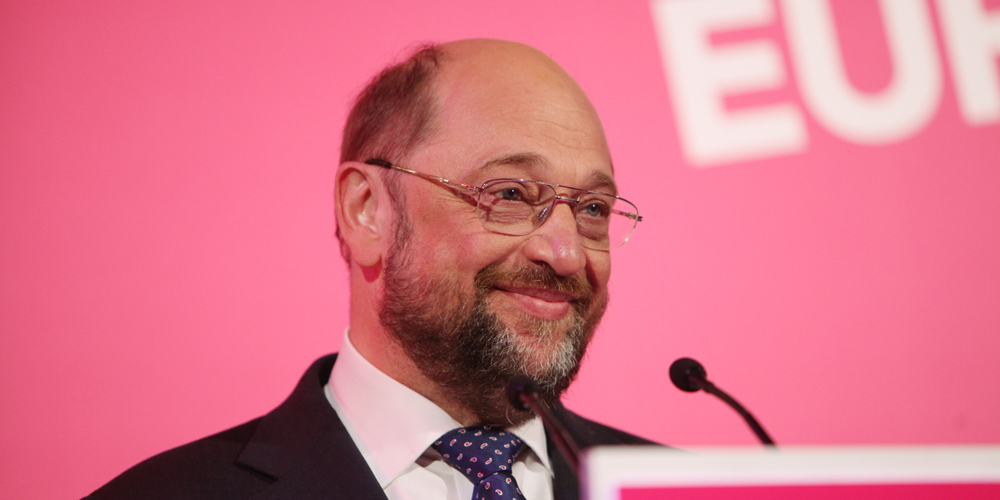Germany’s social democrats
After Martin Schulz became leader of the Social Democratic Party (SPD) and was nominated as its candidate for the German chancellery, it looked like a political myth had finally been proved wrong. Up until the nomination of Schulz in Spring...
After Martin Schulz became leader of the Social Democratic Party (SPD) and was nominated as its candidate for the German chancellery, it looked like a political myth had finally been proved wrong. Up until the nomination of Schulz in Spring 2017, the narrative had prevailed that the Social Democratic Party had lost its popular base, had no story left to tell and would need radical reorientation and a new narrative of social solidarity. Schulz’s presence did give a boost to his party. But now, after the state elections in the federal states of Saarland, Schleswig-Holstein and North Rhine-Westphalia (NRW), many observers are stating that the “Schulz effect” has already lost its initial popularity.
The Social Democrats’ defeat in North Rhine-Westphalia last Sunday is indeed a setback, with the lowest election result for the SPD ever in this state. This state election was often regarded as the “mini-national election” in the run-up to the national election in September this year. It is now looking like the proclaimed “Merkel-tiredness” may have evaporated. With 33 per cent, Merkel’s Christian Democratic Union (CDU) gained the biggest share of the votes in NRW and is mandated to form the state government.
North Rhine-Westphalia is often considered to be the “heartland” of German social democracy (although that is not an entirely historically correct judgement). So the fact that with its “taillight” campaign the CDU has managed to convince the people is even more painful. After all, the economy grew again in 2016. With a growth rate of 2.1 per cent in the first half of 2016, NRW is ranked in eighth place in the national comparison. This is only 0.2 percentage points below the German average – not exactly what a “taillight” looks like. Nevertheless, the governing coalition led by Hannelore Kraft was faced with an increasingly negative narrative by both political opponents and the media.
Lessons learned for the national elections in 2017
On a federal level, the SPD urgently needs to analyse the elections and make use of its findings in the national election campaign. First, it is important to consider the fact that voters are increasingly deciding which way to vote only shortly before the election day. One in three SPD voters in the NRW election campaign only decided how to vote in the few days prior to the election, or even on election day itself. Overall half of all voters decided only shortly before the actual elections.
The CDU might well take advantage of greater participation in all state elections in 2017. As Infratest dimap’s voter migration model demonstrates, the North Rhine-Westphalian CDU could benefit highly from the mobilisation of former non-voters. This might seem paradoxical, as usually it is the progressive parties who gain votes when an increased number of people make use of their democratic rights. An explanation in NRW might be the fact that formerly disappointed CDU voters who abstained from the ballot boxes in 2012 are being remobilised. Still, it is of utmost importance that the SPD adapts its own mobilisation concepts to take greater advantage of high participation.
In the elections in Schleswig-Holstein and North Rhine-Westphalia, where the SPD regional leaders led the campaigns, it became obvious that they had issues in capitalising on their voter potential. The NRW state government’s approval ratings were very low. Seeing the NRW campaign as a “small national election” is therefore questionable. In North Rhine-Westphalia, as well as in the other state elections that have already taken place this year, the political situation within each of the federal states was the main driver behind voters’ decisions. As election days approached, genuine state-specific concerns prevailed over national politics.
Despite its weak overall performance, the Alternative für Deutschland (AfD) is very strong in specific regions. In the cities of the Ruhr area, the AfD scored double digit election results. These are the regions which are particularly affected by structural changes and used to be the SPD’s stronghold.
All of this needs to be considered in order for the SPD to draw conclusions for the national elections in September this year.
Martin Schulz has already had a great impact: the SPD has finally regained credibility within its traditional voter base. Voters’ perceptions of the SPD have become positive again since he became the leader of the party. This is a major success in a time where the promise of social progress appears out of reach to so many. It is not without reason that Oliver Nachtwey is currently examining the increase of “Downward Mobility” in his successful sociological diagnosis of our present time.
Since the nomination of Martin Schulz, the SPD has rapidly gained around 10 percentage points in the opinion polls, and an impressive number of people have joined the party. Meanwhile the Social Democrats in Germany have realised that they are once again being considered as a problem-solving people’s party. This is one of the party’s strong points, regardless of the election result in NRW. It offers reals hope – but hope which can only be realised under the right conditions. As a current survey shows, 56 per cent of German citizens recognise the real dividing lines between the CDU and the SPD thanks to Martin Schulz. Since his nomination, people have gained new confidence in believing that protecting social cohesion is a key part of the core social democratic approach. Nevertheless, since then, Schulz has failed to be more specific about the alternative he is offering. Two-thirds of citizens polled do not know which policies he is seeking to introduce, and 45 per cent state that they had higher expectations of Martin Schulz.
What to do now
The SPD now needs to renew its promises of social progress and social justice, and to decide on policies to achieve these goals. Globalisation and digitalisation need to be properly managed. Tackling inequality in our society is an emancipatory project. The late doyen of inequality studies, Anthony Atkinson, demonstrated that the fight against inequality can also provide a programme to increase social and domestic security. Atkinson attributes social ills such as crime and poor health primarily to huge inequality in society. Successfully integrating refugees and migrants into the labour market and society more widely will reduce inequality, and that in turn will strengthen social cohesion and our democracy. Decreasing economic inequalities will strengthen economic development and therefore increases equal opportunities. An important side effect might be if people recognise that social justice is the SPD’s core competence, they might also be open to the SPD’s other strengths.
Martin Schulz’s credibility is still high, and he can sharply point out the differences between the SPD and CDU. He has been able to re-introduce the party to its own heritage as the defender of the social welfare state. Continuing along this path will only be possible if he can withhold counter-pressure from certain media sources and the economy. But German citizens, as surveys clearly show, are very conscious of increasing inequality, and politics of solidarity and community are popular. Therefore, the SPD needs to show its readiness for conflict with its critics in conflict-prone times.

